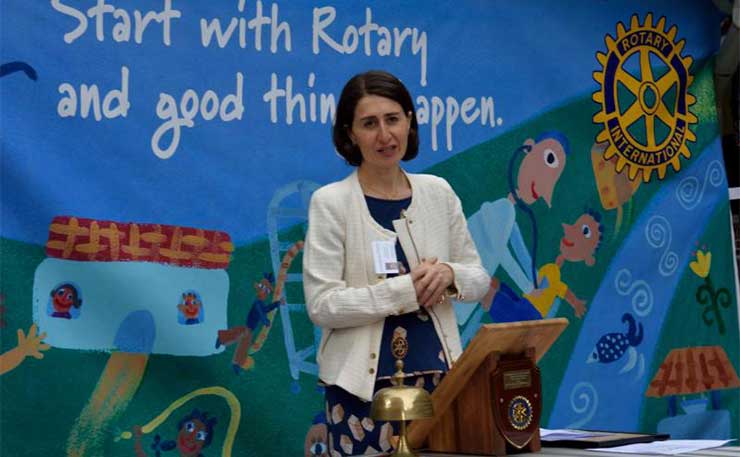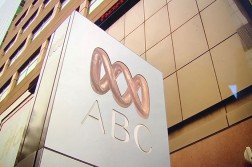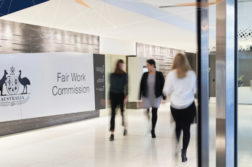In this two-part special feature, Michael Brull looks at a plan by the NSW Liberals to undermine and slash the pay of school cleaners.
There are some 7,000 school cleaners in NSW. Their conditions and wages – already not great – have been protected under an award system and a relatively regulated system of limited contracts in the state.
The NSW Liberal government plans to abolish that system.
Companies will competitively bid for those contracts, then subcontract out to smaller companies to provide cleaning services. The result will be a less regulated system, cleaners being exploited, suffering underpay, job insecurity, and less entitlements.
We know this, because the system the NSW government wants to adopt was essentially the one adopted by Victoria. It was such a disaster that Victoria is currently in the process of transitioning into what was, until now, the NSW model.
In this article, I will review the threat to the conditions of school cleaners in NSW. In the next article, I will explore the debacle in Victoria under the system that NSW is moving to adopt.
7000 school cleaners forced to re-apply for their own jobs
The current system in NSW, with a small number of regulated contracts, has operated since 1994. Anna Patty reported for Fairfax that “The NSW government put its cleaning services contract to tender for the first time in May with a new contract set to begin from July next year.” A spokesperson for the Department of Finance, Services and Innovation (DFSI) dismissed the current contract system as being based on an “outdated, historical formula based on fixed hours at different locations… It has not kept pace with industry best practice, which relies on a transparent, per square metre standard.” That is, rather than paying cleaners based on hours worked, the work will be contracted out, with cleaners paid based on work done, measured in ground covered.
DFSI notified the union for cleaners, United Voice, that employment guarantees that have existed for school cleaners since 1994 “will not be extended in the new contracts from 2018”. As Fairfax observed in an editorial, “For the first time in more than two decades, the state government is changing the way these hard-working cleaners are paid. Instead of continuing to pay them for the number of hours they work, private operators who win the contract will pay them according to the tasks they complete and the ground they cover.”
That is, people who have worked as school cleaners – some of them for decades, under existing guarantees – now have to re-apply for the jobs they are currently performing. After years of loyal service, it is expected that they will lose conditions and entitlement they have earned through years of hard work. Those, that is, who are re-hired. Some are expecting to simply be left out.

Patty reported that one cleaner, Alison Redman, was worried that older cleaners would not be rehired. “I am one of the youngest cleaners and I am 41,” she said. “People are not going to want to employ older people, they are going to want to employ younger people. It will be difficult finding another job when you have been in the cleaning industry for a long time as most cleaners have. Our anxiety and stress levels are through the roof. Some people are taking mental health days to recompose themselves.”
Cleaners are also concerned about job security if they are rehired. They are worried about trying to make ends meet on reduced hours. Many cleaners will live in a state of uncertainty for months, unsure as to whether they will have work from July, and if that work will be enough for them to live on and support their families. Judith Barber, who has cleaned schools for over 10 years, told Patty that “My main concern is not having the same job security and no guarantee of hours. We don’t know where we are next year and whether we have jobs or not.”
Or the case of Arou Akot, a South Sudanese migrant, who relies on cleaning jobs in three western Sydney schools to provide for his seven children. He is a single father, who is worried that under the new system, he may become homeless.
School cleaners work hard to provide a valuable service. They often work terrible hours, split into shifts from 4:30am to 9am, before an afternoon shift from 2pm to 6pm. Their minimum wage award, as far as I can tell, ranges from $19.53, to $21.29 per hour. At a weekly rate of $742.10, that makes for a yearly salary of some $38,589.
Their work isn’t glamorous, it’s often thankless, it’s not high status, the hours are bad, the pay is minimal, and they work hard. But the service they provide is valuable. If you’re a parent, think of whether you want your kid’s school to be filthy. Think of whether you want the toilets in your kid’s school to be regularly cleaned. This is work that needs to be done.
School cleaners do it, get paid a pittance, but it seems even that is too much for the Liberal government. Often, cleaners come from migrant backgrounds, and work as cleaners because it requires minimal English skills. Daniel Hu, who scored an ATAR of 99.85, explained that he was able to achieve his impressive Higher School Certificate results because his father worked tirelessly in numerous cleaning jobs to provide for the family.
This socio-economic marginalisation makes them an attractive target for the government. There are over 700 companies in Australia that make over $500 billion each year between them. They pay no tax. But they are wealthy and powerful. It’s easier for the government to chase revenue by squeezing working class people trying to make ends meet, rather than standing up to financial and corporate elites.
Chris Smith at 2GB Radio has strongly supported the school cleaners. A few days ago, he had on the Minister, Victor Dominello, and grilled him about the changes. Smith argued that Dominello could easily guarantee that people working on school dunnies that morning would keep their jobs. Dominello refused to give that guarantee.
Smith also had Mel Gatfield, the Branch Secretary of United Voice on his show. Smith began by asking: “Would you clean public school toilets? Probably not.” And now, the cleaners are “being treated like rubbish”, working awful hours for hardly any money. He put to Gatfield, “no one would want to do these jobs would they if they had a choice?” She replied “No, not when you see what cleaners have to deal with on a daily basis”. “People don’t realise the hard work they’re doing,” Gatfield said, concluding that “this is a really heartless decision by this government”.
Gatfield noted that cleaners don’t live in Vaucluse or the northern beaches, so they travel “right across Sydney”, and at that time in the morning “there isn’t great public transport”. Gatfield argued that this was about cutting costs, to make it easier to “subcontract out cleaning”, and to cut cleaning hours on the schools. She said that the government should guarantee the current jobs, and the hours that cleaners work.
Smith concluded:
Would you clean school toilets? Would you try and get across town at three am in the morning to get to somewhere at 4:30 to start your shift? These are living breathing human beings. And what’s the bet, they work harder than you and I do? What’s the bet? I bet they do. They get paid nothing, and now the government moves in, because you know, they’re not going to put up too much of a fight, they’re cleaners, they’re probably most of them new arrivals to the country, trying to make a start, just as Frank Lowy tried to do in 1960, and they’re being treated like rubbish… they deserve better.
Indeed they do.
Support the campaign
Readers can support the school cleaners by visiting the campaign website here:
To email the Premier, Gladys Berejiklian, you can visit the website here:
People can also contact their local representative in NSW and urge them to support the cleaners. Alternatively, if you have kids who attend a school, call the school and tell them you’d like them to support their cleaners. Material and templates you can send to teachers and principals is available at their take action page.
PLEASE CONSIDER SHARING THIS STORY ON SOCIAL MEDIA: New Matilda is a small independent Australian media outlet. You can support our work by subscribing for as little as $6 per month here.
Donate To New Matilda
New Matilda is a small, independent media outlet. We survive through reader contributions, and never losing a lawsuit. If you got something from this article, giving something back helps us to continue speaking truth to power. Every little bit counts.




